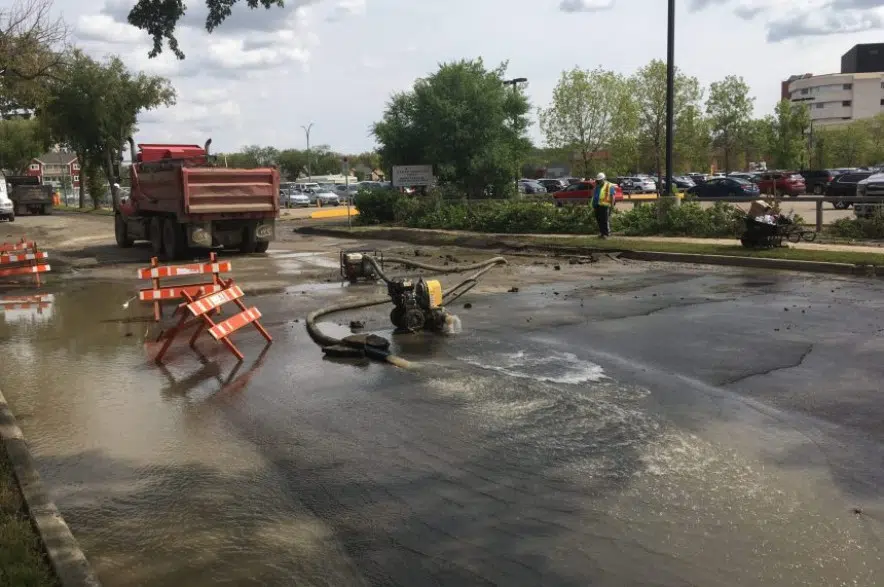Despite a recent report that claimed to have found asbestos in Regina’s tap water, the City of Regina insists its water is fine.
“The City of Regina meets all provincial and federal regulations. Water in the City of Regina is safe,” said Mayor Sandra Masters.
A recent report from CTV’s W5 investigative program looked into asbestos cement (AC) water pipes in Canada. It focused in part on Regina, which has 531 kilometres of AC pipes in its water system — currently about 44 per cent of the water pipes in the city.
The city is one of the few that does its own voluntary testing — it has done so since 2016 — and said it hasn’t found any evidence of asbestos in the water from samples at any of the 11 locations it tests from, which it said are representative of the water within the distribution system.
“No detectable levels of asbestos fibres have ever been identified in any of the samples taken,” read a statement from the city’s administration.
According to its report, W5 did its own testing and found thousands of asbestos fibres per litre of tap water.
In response, Masters said she couldn’t speak to the methodology of the news program’s testing.
There are no guidelines around acceptable amounts of asbestos in drinking water because Health Canada says there is no convincing evidence of harm in ingesting asbestos.
“If there’s any changes or anything required, we would expect to hear from the provincial water agency or Health Canada,” said Masters.
The W5 piece had experts and activists arguing otherwise.
Masters referred any other questions about the water pipes to the city’s administration, but administration declined to provide an interview.
The City of Regina used AC water pipes in its water lines from the mid-1940s to mid-1980s, and according to a memo to Regina’s city council from city administration in 2021, those types of pipes were acceptable building materials until 2015.
However, they’re not without their problems. Because those pipes aren’t built for the type of soil shifting that happens in Regina, they are the main source of water main breaks in the city.
As the pipes break, the city replaces them. About 10 kilometres of AC pipes are being replaced and relined every year, according to the city.
The 2021 memo said the water pipes have been slowly deteriorating, but haven’t reached the point where they would release asbestos fibres into the drinking water.
There are serious known risks to asbestos when it’s inhaled, so the city does have procedures for employees when they’re working on the AC pipes. The report from administration said when the pipes are in the ground, asbestos isn’t waterborne or airborne, so it’s meeting all regulatory requirements.
Saskatoon
Saskatchewan’s largest city also has asbestos cement pipes carrying its drinking water.
Saskatoon has about 300 kilometres of AC pipes right now and is also replacing them as they age out and break.
During a recent meeting, Angela Gardiner, general manager of utilities and environment with the City of Saskatoon, was asked about AC pipes and she also quoted Health Canada.
“We’re not medical experts, we follow (Health Canada’s) guidance and as of now the guidance they have is that there’s no risk for asbestos cement pipes being hazardous to health,” said Gardiner.
She also said if Saskatoon were to go in and replace all of those pipes at once, it would cost about $800 million.
Saskatoon Mayor Charlie Clark called this a challenge and not something that can be solved overnight.
“We’re trying to follow and understand and track the science on this, as well as we are making unprecedented investments in our water mains to replace a lot of those old water mains,” said Clark.
Clark also said Saskatoon has one of the best drinking water supplies in North America and he’s going to continue to make sure that’s the case.











